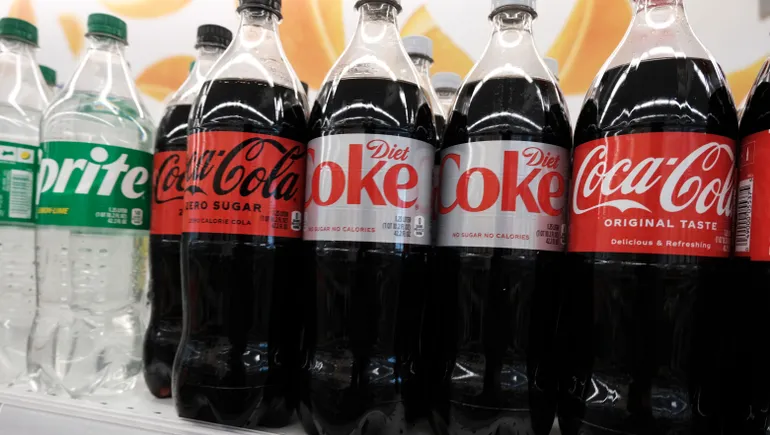Coca-Cola’s Plastic Use to Surpass 9.1 Billion Pounds by 2030, Oceana Report Finds
Coca-Cola is facing scrutiny over its plastic use, with a new report from nonprofit Oceana revealing that the company’s annual plastic use is projected to exceed 9.1 billion pounds by 2030. This would represent a 40% increase in Coca-Cola’s total plastic use compared to 2018, and a 20% increase over its most recent reported plastic use in 2023.
The report suggests that if Coca-Cola were to increase its level of reusable packaging to 26.4% by 2030, the company could significantly reduce its overall plastic use. However, despite previous campaigns to increase the use of reusable plastic in the past decade, Coca-Cola has recently shifted its packaging goals. In December of last year, the soda maker scaled back a previously announced goal to increase its reusable packaging to 25% of products sold.
Coca-Cola’s environmental practices have long been a point of contention, with environmental groups criticizing the company for its packaging practices. The backlash intensified after the company changed its packaging goals in 2024. The new goals are not centered around reusable packaging, although Coca-Cola stated its intention to continue investing in refillable packaging where infrastructure allows. Instead, the company has set a goal to increase the recycled material in its primary packaging (plastic, glass, and aluminum) to 35-40% by 2035.
According to data from the Ellen Macarthur Foundation, only 23% of Coca-Cola’s plastic packaging was reusable in 2023. Oceana’s report calls on the company’s investors to push for the replacement of single-use plastic bottles with reusable packaging. The group referenced a study published in Science last year, which found that Coca-Cola produces the most plastic pollution in the environment.
In response to the report, a spokesperson for Coca-Cola emphasized the company’s focus on increasing recycled materials in packaging and advocating for policies that support recycling infrastructure. The spokesperson acknowledged that more must be done and highlighted Coca-Cola’s commitment to exploring new collection models, investing in local infrastructure, and engaging with policymakers.
Earlier this year, Coca-Cola warned that it may increase its reliance on plastic due to President Donald Trump’s tariffs. CEO James Quincey indicated that the company might use more plastic bottles if aluminum prices rise due to tariffs on countries that produce the material.
Meanwhile, Coca-Cola’s main competitor, PepsiCo, admitted last year that it may not reach its 2025 goal of making 100% of its packaging recyclable, compostable, biodegradable, or reusable. The beverage industry faces increasing pressure to address plastic pollution and improve sustainability practices, with consumers and investors alike calling for greater accountability and action from companies like Coca-Cola.


